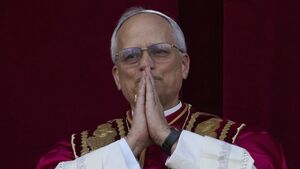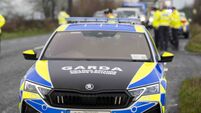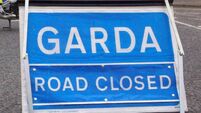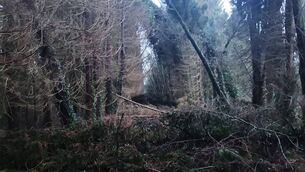Herald Opinion - A historic leap for the Church

Newly elected Pope Leo XIV appears at the balcony of St. Peter's Basilica at the Vatican, on Thursday, May 8th. Pic: AP Photo/Andrew Medichini
The world watched in awe this past week as white smoke rose above the Sistine Chapel, signalling the election of a new pope. But this time, it wasn’t just another chapter in Church tradition—it was a historic leap. For the first time, an American has ascended to the papacy. A former missionary in South America, he becomes not only the first US native to take the role but just the second pontiff from the Americas, after Pope Francis.
This moment is more than symbolic. It marks a continued shift in the Church’s centre of gravity—from its traditional European base to the vibrant, faith-filled communities of Latin America. The new pope’s deep ties to Peru reflect this reality. While he was born in Chicago, his pastoral identity was shaped in the highlands of Peru, not the pews of Illinois.
For many Italians, this may feel like another nudge away from their centuries-long spiritual home. After all, Pope John Paul II shattered a 400-year tradition when he became the first non-Italian pope in 1978. Since then, the papacy has travelled from Poland to Germany to Argentina—and now, improbably, to a man who sounds like an American but thinks, prays, and perhaps dreams in Spanish.
I couldn’t help but think of Bob Dylan’s timeless lyric: “The times, they are a-changin’.” And so too is the Catholic Church.
This new pope’s roots in South America also intersect deeply with Ireland. For decades, Irish missionaries served in Peru, Brazil, Chile, and beyond—often under extraordinarily difficult conditions. These were men and women who brought with them not just the Gospel, but songs, humour, and hope. It’s no surprise, then, that the new pope—an Augustinian—has strong ties to Ireland. Reports emerged almost immediately after his election of visits to Cork, Dublin, and Tipperary. People shared stories of meeting him, hearing him preach, or simply shaking his hand.
One moment that particularly struck me was the voice of Donal Walsh’s mother on the radio. Donal, you might recall, was the brave young man from Kerry who, despite battling terminal cancer, became a powerful voice against youth suicide. Before his death in 2014 at just 17, he inspired thousands with his honesty, faith, and courage.
As it turns out, on the day after the new pope was elected, 2,500 young people gathered at Knock Shrine for an anniversary Mass in Donal’s memory. More moving still, the new pope had previously promised Donal’s uncle—an Augustinian priest—that he would one day celebrate that Mass. Whether he will now return to Knock as pope, as John Paul II and Francis once did, remains to be seen. But if he does, maybe he’ll get to sign another Mayo jersey—or better yet, we might sneak a Rossie one into his hands.
While many were reflecting on the spiritual and cultural significance of this papal election, I was also indulging my soft spot for a different kind of ritual: elections themselves. As regular readers know I always enjoy the drama, the predictions, the tension of an election —whether it’s for the county council or the next pope.
At the minor final in Castlebar last Friday night, I got chatting with Padraig Harte, a lecturer at ATU Sligo, about an unlikely overlap: artificial intelligence and Vatican politics. Padraig and another friend, Padraig McGoarty, developed a piece of AI software designed to analyse electoral data and forecast outcomes. Their model had performed impressively in predicting results for the Sligo-Leitrim constituency in the last general election.
This time, they aimed higher: predicting the next pope.
Padraig appeared on RTÉ’s Drivetime the day the conclave concluded, explaining how the AI bot made its predictions, and who it thought would win. Naturally, Lynn decided to have a flutter on their forecast. Not long after, the white smoke appeared. The excitement in the crowd was palpable, but alas—our pick wasn’t the one chosen. I lost a euro on the bet.
I made sure the St Michael’s man heard about it. Ever the statistician, he pointed out that the eventual pope had been fifth on their shortlist. His only regret? Not publishing the full top ten. As I told him, even including the top six would’ve made them look like oracles.
In fairness, with four rounds of voting maybe their AI wasn’t far off. Perhaps next time, the algorithm will make it all the way to the white smoke.
Amid the laughter and theological speculation, a sense of hope hung in the air. This new pope seems intent on continuing Francis’s mission—emphasising peace, humility, and a preferential option for the poor. He has already called for an end to the war in Ukraine and prayed for a ceasefire in Gaza. His words, like his journey, seem rooted in lived compassion rather than mere ceremony.
The times are indeed changing. And in a week filled with white smoke, Irish echoes, and a lost euro, I’d say the Church and perhaps the world just got a little bit more interesting.





